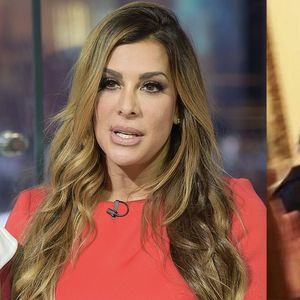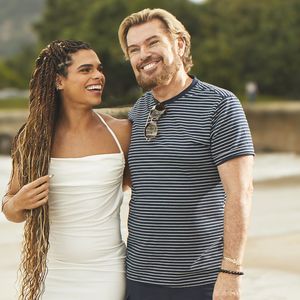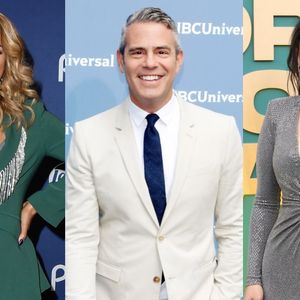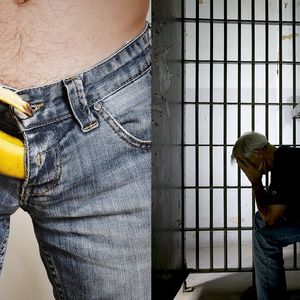CONTACTStaffCAREER OPPORTUNITIESADVERTISE WITH USPRIVACY POLICYPRIVACY PREFERENCESTERMS OF USELEGAL NOTICE
© 2024 Pride Publishing Inc.
All Rights reserved
All Rights reserved
By continuing to use our site, you agree to our Private Policy and Terms of Use.
Scholars who interpret religious law for Conservative Judaism might soon ease their ban on ordaining gays, testing not only the unity of their movement but also their relations with the wider Jewish community. The Committee on Jewish Law and Standards was scheduled to vote on the issue in a closed-door session Wednesday. Under the panel's complex voting system, more than one policy could be adopted, leaving seminaries and synagogues to decide on their own which approach to follow. Rabbi Jerome Epstein, a committee member and head of the synagogue arm of the movement, has been traveling the country for months, telling congregations to prepare for that outcome. He predicted the panel would approve one policy liberalizing the ban and another affirming it. Rabbi Joseph Prouser, leader of the Little Neck Jewish Center in New York, has warned that adopting conflicting policies would create ''doctrinal anarchy.'' But advocates for gay ordination say Conservative synagogues must make some move toward becoming more welcoming. ''Our movement will be strengthened by the complete inclusion of gay and lesbian Jews,'' said Sarah Freidson, a rabbinical student at the Jewish Theological Seminary (the flagship school of Conservative Judaism) who is a leader of the Jewish gay advocacy group Keshet. The vote comes as Conservative Jews struggle to hold the shrinking middle ground of American Judaism, losing members to both the liberal Reform and the traditional Orthodox branches. Conservative Judaism permits limited updating of religious law, and Wednesday's vote will send a strong message about how far leaders will go in reinterpreting tradition. Reform Jews, as well as the smaller Reconstructionist branch, settled the question years ago, allowing partnered gays to become rabbis; the Orthodox bar gays and women from ordination. The last major Law Committee vote on gay relationships came in 1992, when the panel voted 19-3, with one abstention, that Jewish law barred openly gay students from seminaries and prohibited the more than 1,000 rabbis in the movement from officiating at gay union ceremonies. In the latest discussion, the 25-member committee is considering five legal papers, called ''teshuvot,'' for and against change. One of the papers, billed as a compromise, would permit gay ordination while maintaining a ban on anal intercourse between male partners. Since each legal paper needs just six votes to be accepted by the committee, more than one can be approved. The debate focuses on the significance of such biblical verses as Leviticus 18:22, which states, ''Do not lie with a male as one lies with a woman," echoing the battles within mainline Protestant denominations about the Bible and sexuality. It's unclear whether any of the estimated 750 North American synagogues in the United Synagogue of Conservative Judaism would break from the movement. A handful of Canadian congregations, which tend to be more traditional than their U.S. counterparts, have said they would consider the idea. However, leaders believe it's more likely that individuals who object to the change will leave to worship in Orthodox synagogues. Arnold Eisen, incoming chancellor of the Jewish Theological Seminary, personally supports ordaining gays. But he said in a November 22 e-mail to the seminary community that faculty will vote on how the school should respond to the committee vote. Rabbi Elliot Dorff, vice chairman of the panel and a supporter of gay ordination, is rector of The Ziegler School of Rabbinic Studies in Los Angeles, which also trains Conservative rabbis. The school is expected to admit gays if the committee allows it. (Rachel Zoll, AP)
Want more breaking equality news & trending entertainment stories?
Check out our NEW 24/7 streaming service: the Advocate Channel!
Download the Advocate Channel App for your mobile phone and your favorite streaming device!
From our Sponsors
Most Popular
Here Are Our 2024 Election Predictions. Will They Come True?
November 07 2023 1:46 PM
17 Celebs Who Are Out & Proud of Their Trans & Nonbinary Kids
November 30 2023 10:41 AM
Meet all 37 of the queer women in this season's WNBA
April 17 2024 11:24 AM
Here Are the 15 Most LGBTQ-Friendly Cities in the U.S.
November 01 2023 5:09 PM
Which State Is the Queerest? These Are the States With the Most LGBTQ+ People
December 11 2023 10:00 AM
These 27 Senate Hearing Room Gay Sex Jokes Are Truly Exquisite
December 17 2023 3:33 PM
10 Cheeky and Homoerotic Photos From Bob Mizer's Nude Films
November 18 2023 10:05 PM
42 Flaming Hot Photos From 2024's Australian Firefighters Calendar
November 10 2023 6:08 PM
These Are the 5 States With the Smallest Percentage of LGBTQ+ People
December 13 2023 9:15 AM
Here are the 15 gayest travel destinations in the world: report
March 26 2024 9:23 AM
Watch Now: Advocate Channel
Trending Stories & News
For more news and videos on advocatechannel.com, click here.
Trending Stories & News
For more news and videos on advocatechannel.com, click here.
Latest Stories
Trans man Tee Arnold shot to death in Florida
April 17 2024 4:41 PM
Can scientific research on the causes of homosexuality be used against LGBTQ+ people?
April 17 2024 4:02 PM
George Takei releases kids' book about his childhood in internment camp
April 17 2024 3:18 PM

PLUS
ExclusivesTodrick Hall on surviving the rumors and remembering where he came from
April 17 2024 2:33 PM

Pride
Yahoo FeedHow The Pride Store celebrates National Tea Day: A tale of two brews
April 17 2024 2:14 PM
'Parents' Rights' movements forget families have the right to read LGBTQ+ books
April 17 2024 10:15 AM
This gay man had to flee Ghana after a violent attack. He’s finally been granted asylum
April 17 2024 9:17 AM
Trending stories
Most Recent
Recommended Stories for You
















































































